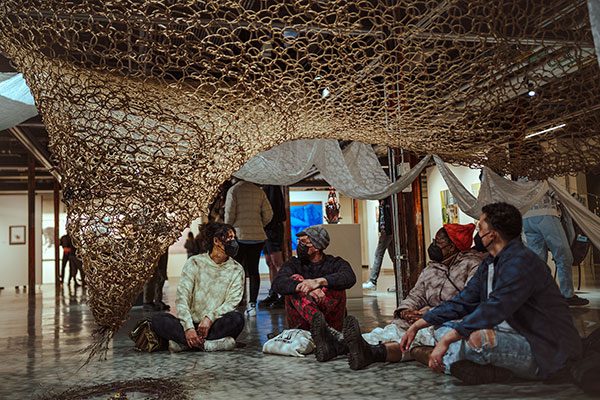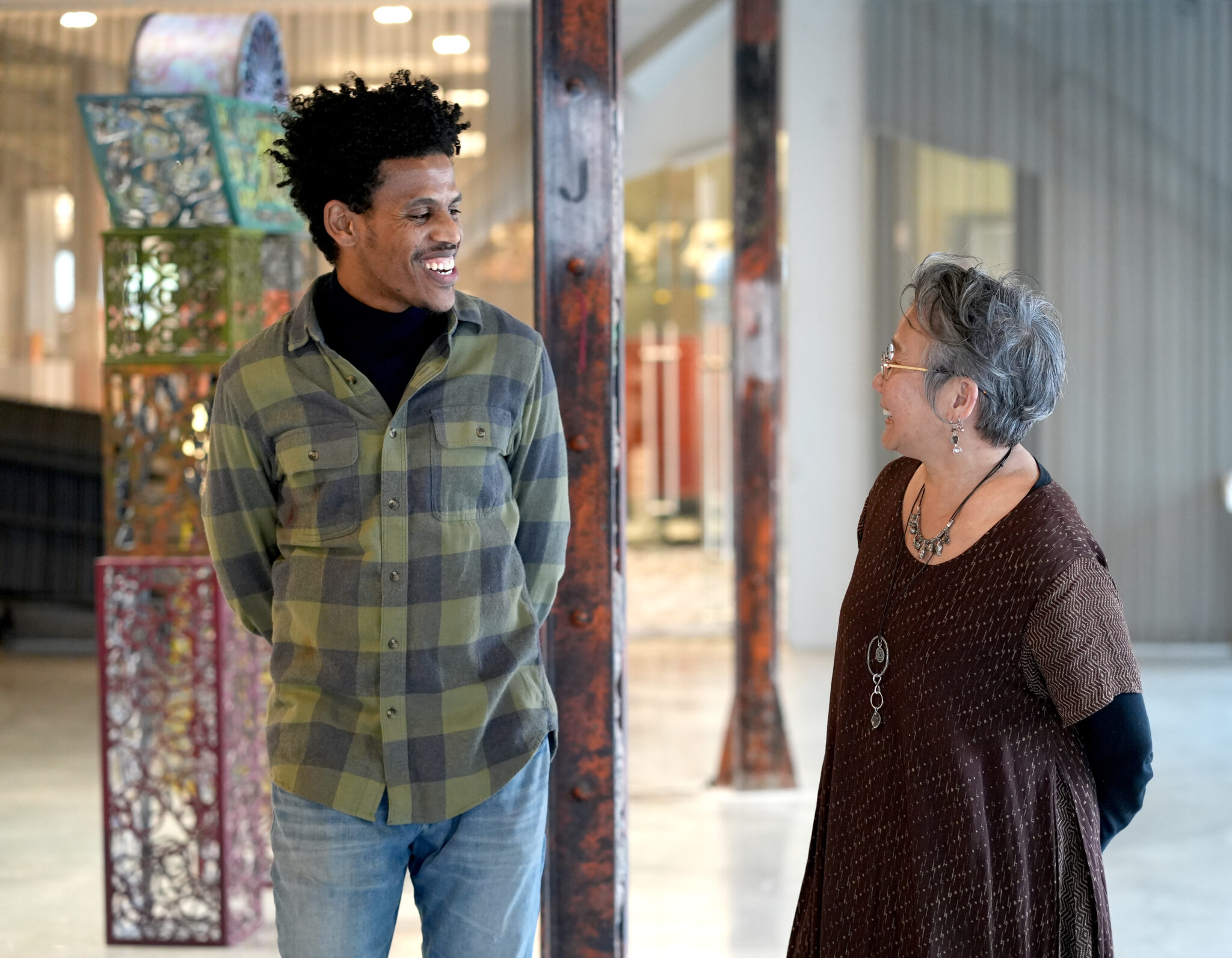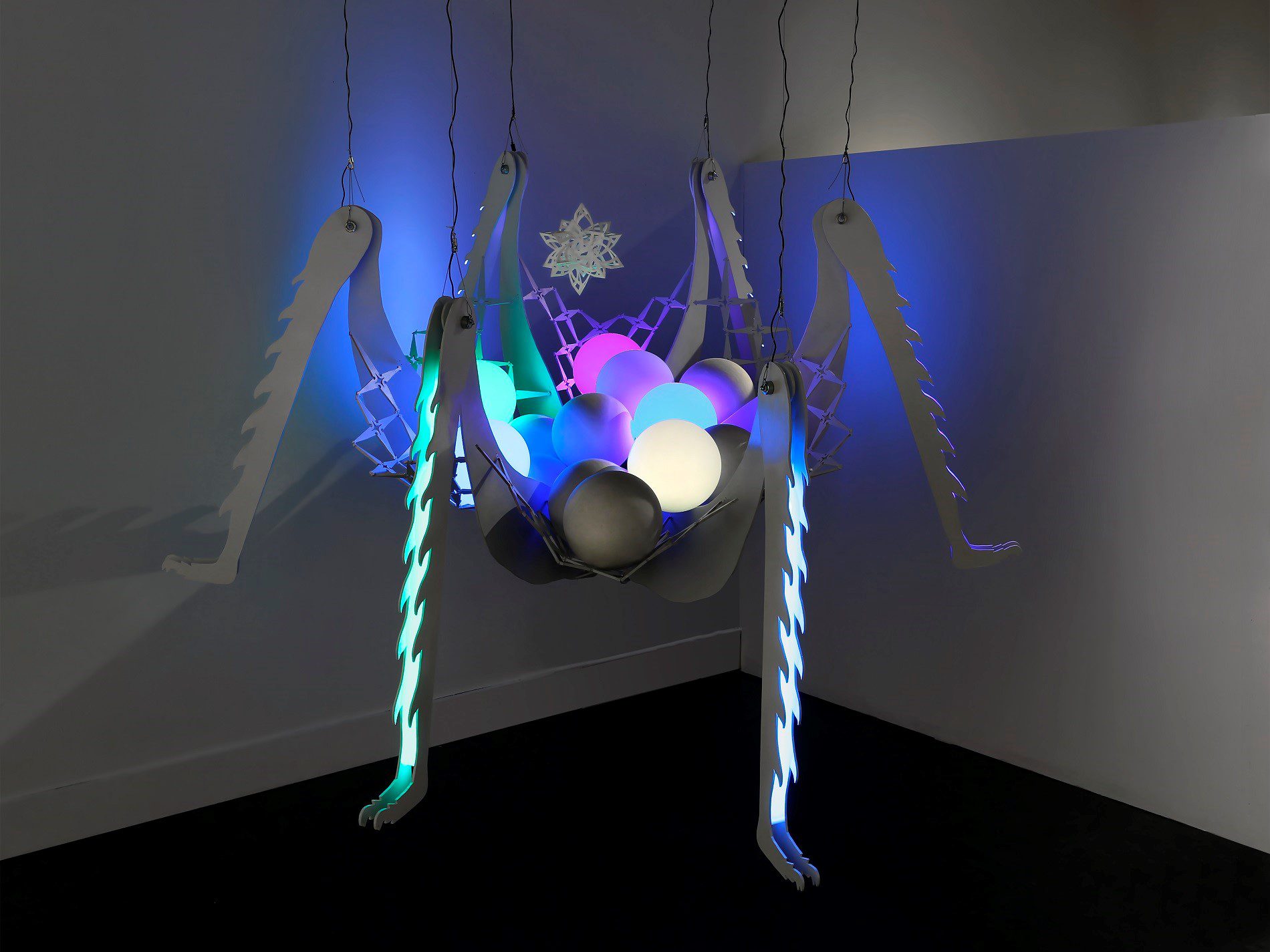
July 18 – September 10, 2016 at Seattle Presents Gallery in the Seattle Municipal Tower
This summer, the Seattle Presents Gallery will be home to filmmaker and writer Shaun Scott’s The Faded Signs Podcast. In two shows featuring conversations with brilliant luminaries and digressions into forgotten detours of American history, The Faded Signs Podcast will ponder what the present will look like to future generations who can only see what we left behind (and not our best intentions).
 The Faded Signs Podcast is part of the Seattle Presents Gallery series Dialogues in Art: Exhibitions on Racial Injustice, a yearlong exploration of artists’ and curators’ interpretations of racial injustice and systemic racism impacting Black and African-American people throughout America.
The Faded Signs Podcast is part of the Seattle Presents Gallery series Dialogues in Art: Exhibitions on Racial Injustice, a yearlong exploration of artists’ and curators’ interpretations of racial injustice and systemic racism impacting Black and African-American people throughout America.
Scott writes the column “Faded Signs” for City Arts Magazine. In bi-weekly dispatches, he covers film, music, professional sports, and the Seattle arts scene for a critical portrait that calls attention to dynamics of race, class, and gender in the popular culture of 21st century capitalism. The Faded Signs Podcast will shine the same light. Interviews, found audio from the vault of pop culture, and creative nonfiction will come together in a treat for the ears and the mind. The podcast will be available free on iTunes and SoundCloud, and on the Office of Arts & Cultural Affairs’ website.
Scott is a Seattle-based writer and filmmaker whose work has appeared in Jacobin Magazine, Seattle Weekly, and the film journal Senses of Cinema. He is the author of the e-book Something Better: Millennials and Late Capitalism at the Movies. His forthcoming book Millennials and the Moments That Made Us: A Cultural History of the U.S. from 1984-present is forthcoming in 2017.
The Office of Arts & Culture, in partnership with the Office for Civil Rights, is committed to addressing, and increasing community-wide awareness about, existing inequities so that we, along with our cultural and community partners, can most effectively work together toward a vision of racial equity. Seattle Presents Gallery features a variety of immersive installations, curated exhibitions pulled from the city’s Portable Works Collection, resident artists, and original artworks. The gallery presents both emerging and established artists and curators, and provides all who pass by the opportunity to engage in diverse arts and cultural experiences.
Participating artists in the Dialogues in Art: Exhibitions on Racial Injustice series
Xenobia Bailey studied ethnomusicology at the University of Washington, and received her BA in industrial design from Pratt Institute in Brooklyn, NY. Her pieces are often connected to her ongoing project “Paradise Under Reconstruction in the Aesthetic of Funk”. Her designs draw influences from Africa, China, and Native American and Eastern philosophies, with undertones of the 1970’s funk aesthetic. Bailey has been artist-in-residence at the Studio Museum in Harlem, the Society for Contemporary Craft in Pittsburgh, and the Marie Walsh Sharpe Art Foundation in New York City. Bailey co-organized a Black Cultural Workshop with the African-American inmates at McNeil Island Federal Penitentiary and Monroe State Reformatory in the 1970’s. Her work has been exhibited at the Studio Museum in Harlem, the Jersey City Museum, the New Museum of Contemporary Art, and the High Museum of Art in Atlanta and NAAM. Her work is in the permanent collections at Harlem’s Schomberg Center for Research in Black Culture, the Allentown Art Museum, the Museum of Contemporary Arts, and the Museum of Arts and Design.
Jasmine Iona Brown was born in Indianapolis, Indiana and traveled to five continents before settling in West Seattle. She earned her B.F.A. at Howard University and her M.A. from UCLA. Her graduate study in ancient history and cultures led her to incorporate antique artistic mediums, such as egg tempera, into her artwork. She is fascinated with the human face and the tragic narratives of marginalized people. Brown is the recipient of a 2011 Puffin Foundation Grant to paint a series of Byzantine style egg-tempera icons memorializing a few of the many children of color that are lost to violence.
Barry Johnson is a Washington-based visual artist and filmmaker from Kansas who’s had a range of works in visual art and film shown across the U.S. and the world. Waking up at 2 am every morning to paint in his studio, Johnson works tirelessly to create pieces that challenge views on gender, race, sex, and sound. His work is a result of events taking place around the world and in everyday life.
Mark Mitchell is an artist who speaks to social issues through textiles. His contributions to Seattle’s cultural community bridge a number of disciplines, including art, music, theater, fashion, activism, and education. He is the subject of the award-winning documentary film Burial, and presented a performance and exhibition of the same title at the Frye Art Museum in 2013.
Shaun Scott is a Seattle-based independent filmmaker whose first feature film was “Seat of Empire” (2009), a 3-hour long documentary tour of the city of Seattle using archival footage. In 2010 he directed and wrote “Waste of Time”, a historical mash-up of original footage, archival images, and contemporary music meant as a portrait of consumer capitalism.
Elizabeth Spavento is interested in identity politics (particularly as they relate to race and gender), the untapped potential of space, altered states of consciousness and unstructured time. Her practice seeks the fringe as a way to push back against hegemony, and her work tends to favor alternative spaces and community-driven practices. She has curated exhibitions for Disjecta Contemporary Art Center in Portland, OR and Open Source Gallery in New York, NY in addition to exhibiting her own work in Buffalo, NY. Spavento’s most recent project, ALL RISE, was a two year series of temporary public artworks punctuated by performance, video and music on a 90,000 sq. ft. gravel lot in downtown Seattle. She is the 2016 visiting curator for Interstitial, Seattle’s premiere exhibition space for artists working in new media. Elizabeth Spavento currently lives nowhere in particular and works everywhere she is.


